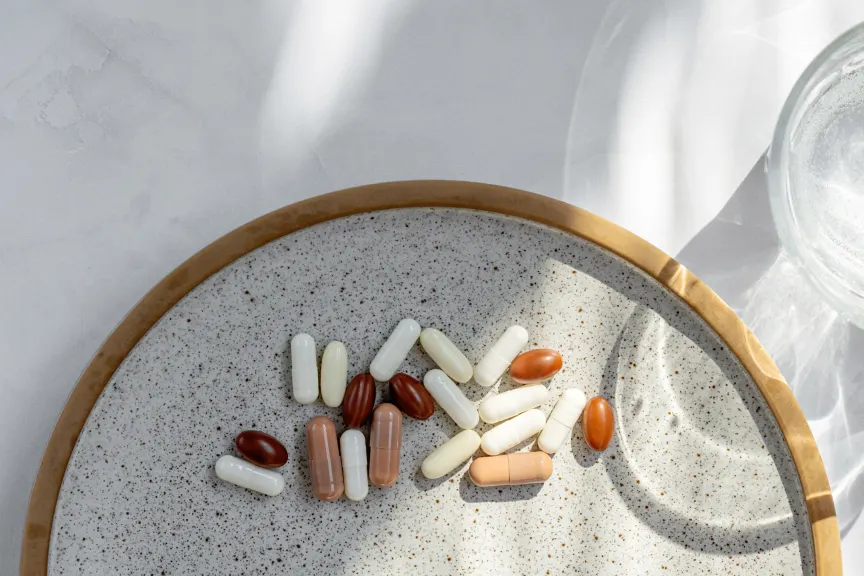As people age, maintaining optimal health becomes increasingly important. Older adults often seek ways to enhance their well-being, prevent chronic conditions, and maintain independence. Supplements are a common solution, but not all are created equal. While some can provide essential nutrients or help with age-related health concerns, others can be ineffective or even harmful. This guide explores the best and worst supplements for older adults, backed by scientific evidence and expert recommendations.
Why Supplements Matter for Older Adults
Aging often brings about physiological changes that can impact the body’s ability to absorb and utilize nutrients. This, coupled with dietary restrictions, chronic conditions, or medication use, can lead to nutrient deficiencies. Supplements can fill these gaps, supporting:
- Bone health
- Immune function
- Heart health
- Cognitive function
- Energy production
Older adults often face challenges like reduced appetite, difficulty chewing, or chronic illnesses that affect nutrition. Supplements can bridge the gap between dietary intake and nutritional requirements. However, not all supplements are necessary or safe. Consulting with a healthcare provider is essential to ensure the chosen supplements address individual needs.
The Best Supplements for Older Adults
1. Vitamin D: The Sunshine Vitamin
Why It’s Important: Vitamin D is essential for bone health, as it aids in calcium absorption. It also plays a role in immune function and reducing inflammation. Older adults are often deficient in vitamin D due to limited sun exposure and a decreased ability to synthesize it through the skin.
Sources: Sunlight, fortified foods, and fatty fish like salmon and mackerel.
Recommended Dosage: The recommended daily allowance (RDA) for adults over 70 is 800 IU, though some experts suggest up to 2,000 IU daily for those with deficiencies.
Health Benefits: Supports strong bones, reduces the risk of fractures, and boosts immune function.
2. Calcium: Building Blocks for Strong Bones
Why It’s Important: Calcium works alongside vitamin D to maintain strong bones and reduce the risk of fractures. Older adults, especially postmenopausal women, are at increased risk for osteoporosis and calcium deficiency.
Sources: Dairy products, leafy greens, fortified plant-based milk, and supplements.
Recommended Dosage: 1,200 mg daily for adults over 50.
Health Benefits: Prevents bone loss and supports muscle function.
3. Omega-3 Fatty Acids: Brain and Heart Booster
Why It’s Important: Omega-3s, particularly EPA and DHA, are beneficial for heart and brain health. They help reduce inflammation, lower triglycerides, and may slow cognitive decline in older adults.
Sources: Fatty fish like salmon, mackerel, and sardines; plant-based sources like flaxseed and walnuts.
Recommended Dosage: 1,000 mg of EPA and DHA daily.
Health Benefits: Promotes cardiovascular health, reduces arthritis symptoms, and supports brain function.
4. B Vitamins: Energy and Neurological Support
Why They’re Important: These vitamins are essential for energy production, red blood cell formation, and neurological function. Vitamin B12 deficiency is common in older adults due to reduced stomach acid production, which impairs absorption.
Sources: Meat, fish, eggs, dairy, and fortified cereals.
Recommended Dosage:
- Vitamin B6: 1.5 mg daily for women, 1.7 mg for men.
- Vitamin B12: 2.4 mcg daily.
- Folate: 400 mcg daily.
Health Benefits: Supports brain health, reduces the risk of anemia, and boosts energy levels.
5. Magnesium: Muscle and Nerve Health
Why It’s Important: Magnesium supports muscle and nerve function, blood sugar control, and bone health. Deficiency can lead to muscle cramps, fatigue, and irregular heart rhythms.
Sources: Nuts, seeds, whole grains, and green leafy vegetables.
Recommended Dosage: 320 mg daily for women, 420 mg for men.
Health Benefits: Improves sleep quality, reduces muscle pain, and supports heart health.
6. Probiotics: The Gut Health Hero
Why They’re Important: Probiotics promote gut health by balancing the microbiome. A healthy gut can improve digestion, boost the immune system, and may even affect mood and cognitive function.
Sources: Yogurt, kefir, sauerkraut, and supplements containing live bacterial strains.
Recommended Dosage: Varies by product, but look for supplements with at least 1 billion CFUs (colony-forming units) of diverse strains like Lactobacillus and Bifidobacterium.
Health Benefits: Improves digestion, reduces bloating, and enhances nutrient absorption.
7. Coenzyme Q10 (CoQ10): Cellular Energy Booster
Why It’s Important: CoQ10 is an antioxidant that supports heart health and energy production in cells. Levels decline with age and can be further depleted by statin medications.
Sources: Organ meats, fatty fish, and supplements.
Recommended Dosage: 100-200 mg daily.
Health Benefits: Enhances cardiovascular health, combats fatigue, and reduces the side effects of statins.
The Worst Supplements for Older Adults
While some supplements offer undeniable benefits, others pose risks, are unproven, or are simply unnecessary. Here are some supplements older adults should approach with caution:
1. Iron: Too Much of a Good Thing
Why It Can Be Harmful: Excess iron can accumulate in the body, leading to organ damage and increasing the risk of heart disease and diabetes. Most older adults get enough iron from their diet unless they have a diagnosed deficiency.
Sources: Red meat, fortified cereals, and iron supplements.
Recommendation: Avoid unless prescribed by a doctor.
2. Vitamin A: Beware of Toxicity
Why It Can Be Harmful: Excessive intake of vitamin A (retinol) can lead to toxicity, causing symptoms like nausea, dizziness, and even bone fractures. Beta-carotene (a precursor to vitamin A) is safer but still unnecessary for most older adults with a balanced diet.
Sources: Liver, eggs, and fortified foods.
Recommendation: Stick to dietary sources and avoid high-dose supplements.
3. High-Dose Vitamin E: Proceed with Caution
Why It Can Be Harmful: While vitamin E has antioxidant properties, high doses have been linked to an increased risk of bleeding and, in some cases, prostate cancer.
Sources: Nuts, seeds, and vegetable oils.
Recommendation: Avoid supplements exceeding 400 IU daily unless advised by a healthcare provider.
4. St. John’s Wort: Interactions Galore
Why It Can Be Harmful: This herbal supplement is often used for mild depression, but it can interact with many medications, including antidepressants, blood thinners, and chemotherapy drugs. These interactions can reduce medication effectiveness or cause dangerous side effects.
Sources: Herbal teas and capsules.
Recommendation: Avoid unless supervised by a healthcare provider.
5. Kava: Risky Relaxation
Why It Can Be Harmful: Kava is promoted for anxiety relief but has been linked to severe liver damage, even with short-term use. It’s banned in several countries due to safety concerns.
Sources: Herbal supplements.
Recommendation: Avoid entirely.
6. Beta-Carotene: Not Always Safe
Why It Can Be Harmful: High doses of beta-carotene supplements have been linked to an increased risk of lung cancer in smokers and people exposed to asbestos. For older adults, the risks outweigh the potential benefits.
Sources: Carrots, sweet potatoes, and supplements.
Recommendation: Avoid supplements; rely on dietary sources instead.
7. Calcium: Watch the Dosage
Why It Can Be Harmful: While calcium is crucial for bone health, excessive intake (over 2,000 mg daily) can lead to kidney stones and cardiovascular issues.
Sources: Dairy, fortified foods, and supplements.
Recommendation: Stick to the recommended daily intake.
How to Choose Supplements Wisely
When considering supplements, older adults should prioritize safety and efficacy. Follow these tips:
Consult a Healthcare Provider: Always discuss potential supplements with a doctor or pharmacist to avoid interactions with medications or existing health conditions.
Choose Reputable Brands: Look for third-party testing and certifications, such as USP, NSF, or ConsumerLab, to ensure product quality.
Read Labels Carefully: Look for information on dosage, active ingredients, and any potential allergens. Avoid products with vague or exaggerated claims.
Prioritize Whole Foods: Supplements should complement, not replace, a balanced diet. Aim to get most nutrients from food and use supplements only as a backup.
Monitor for Side Effects: Keep an eye out for adverse reactions, especially when starting a new supplement. Report any unusual symptoms to your doctor immediately.
Reevaluate Regularly: As health conditions and medications change over time, so may your supplement needs. Schedule periodic reviews with your healthcare provider.
Key Considerations for Older Adults
Interactions with Medications: Older adults often take multiple medications, increasing the risk of interactions with supplements. For instance, calcium can interfere with thyroid medications, while magnesium can reduce the efficacy of certain antibiotics.
Preexisting Conditions: Chronic illnesses like kidney disease, liver problems, or diabetes can affect how the body processes supplements. High doses of certain nutrients may worsen these conditions.
Nutrient Absorption Issues: Aging affects digestion and absorption. Conditions like atrophic gastritis or medications like proton pump inhibitors (PPIs) can reduce the body’s ability to absorb nutrients like B12 and magnesium.
The Role of Lifestyle in Supplement Use
While supplements can fill nutritional gaps, they are no substitute for a healthy lifestyle. Older adults should focus on:
Balanced Nutrition: Include a variety of fruits, vegetables, whole grains, lean proteins, and healthy fats.
Regular Exercise: Physical activity promotes bone strength, cardiovascular health, and mental well-being.
Stress Management: Mind-body practices like yoga, meditation, or tai chi can support overall health.
Quality Sleep: Adequate rest is crucial for recovery and mental health.
Emerging Trends in Supplements
The supplement industry is constantly evolving, with new products entering the market. Some emerging trends include:
Collagen Supplements: Popular for joint health and skin elasticity, collagen may help older adults maintain mobility and youthful skin.
Nootropics: These supplements claim to enhance brain function, memory, and focus. Examples include ginkgo biloba, Bacopa monnieri, and lion’s mane mushroom. While promising, more research is needed to confirm their efficacy and safety.
Personalized Nutrition: Advances in technology allow for DNA-based recommendations tailored to individual genetic predispositions and health needs. This approach may optimize supplement use but remains expensive and not yet widely available.
Final Thoughts: A Balanced Approach
Supplements can play a vital role in supporting the health of older adults, but they should be chosen carefully. Over-reliance or misuse can lead to health risks, making it essential to consult with healthcare providers before starting any supplement regimen. The focus should always remain on maintaining a healthy diet and lifestyle, with supplements serving as an adjunct to support well-being.
By staying informed and proactive, older adults can navigate the world of supplements effectively, ensuring they reap the benefits while avoiding potential pitfalls.




